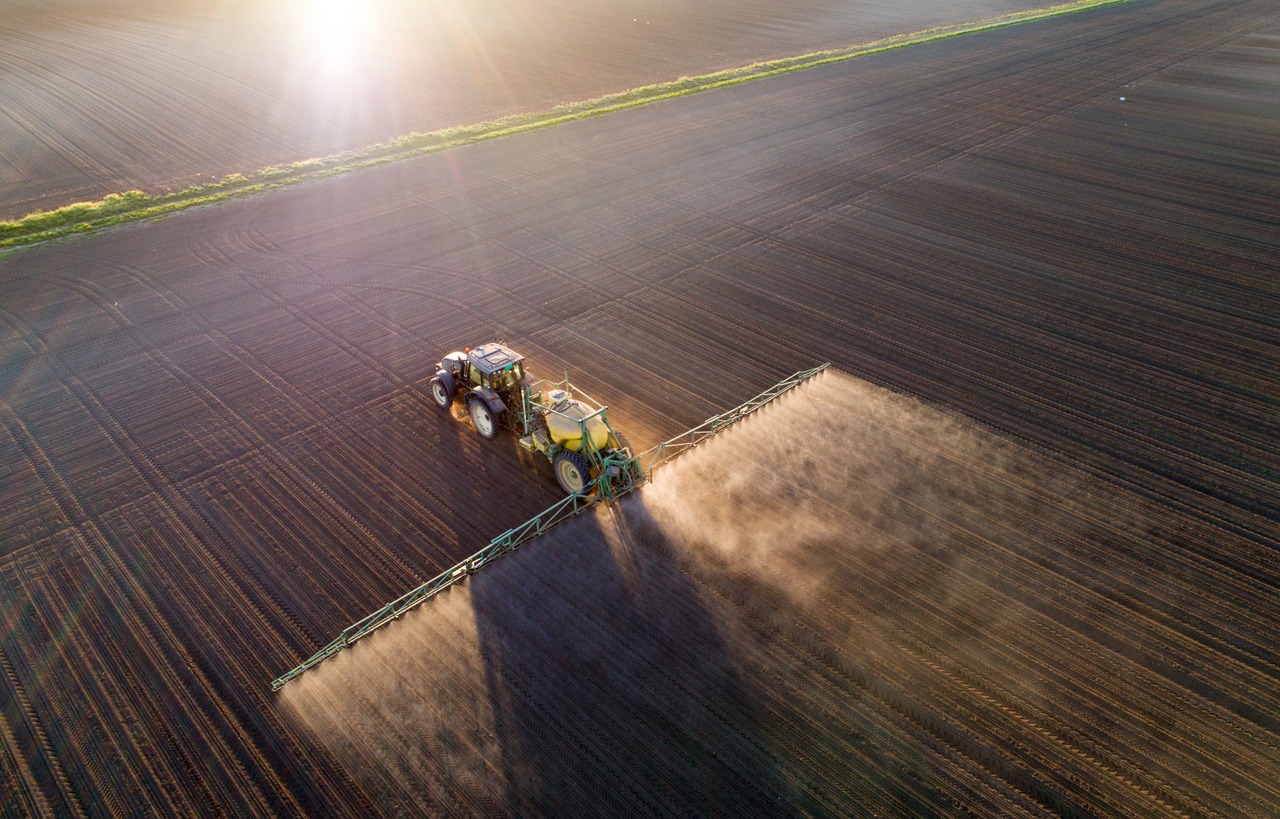Sound Agriculture, a molecular biology startup has developed a line of crop inputs that are designed to promote the efficient use of resources and resilience amid changing weather patterns.
Farmers are constantly on the hunt for new and better inputs that can help them grow more with fewer resources. With a dead zone in the Gulf of Mexico the size of Connecticut a severe example of the result of nitrogen fertilizer runoff, fertilizer has become a hotly debated topic. As consumers demand more sustainability and less environmental impact, farmers need innovative classes of inputs that tap new technologies.
Entrepreneurs have clearly taken notice and many are creating new products for farmers that don’t pose such serious environmental risks. Investors are also getting involved and in 2018 Ag Biotech startups, a significant portion of which are these alternatives, captured $1.5 billion of funding, according to AgFunder’s 2018 AgriFood Tech Investment Report. Some companies in the alternatives space scored eye-popping rounds like Indigo’s $250 million Series E for its microbe-treated seed and supply chain technology business.
Sound Agriculture, previously Asilomar Bio, is arguably one of the longest standing startups creating bio-inspired solutions to stimulate crop growth without relying on existing synthetic inputs. Offering inputs for a range of crops, including all major row crops, the San Francisco-based startup raised a $12.25 million Series B round in December 2017 led by Syngenta Ventures with participation from ag retailer Wilbur Ellis’s Cavallo Ventures, biotech VC Mission Bay Capital and follow-on investors from the company’s $3 million Series A in 2015 with Cultivian Sandbox, and Fall Line Capital.
It scored a licensing agreement with Koch Biological Solutions in 2017, which has secured global rights to commercialize and market products that contain Sound Agriculture’s technology.
The company also won the Most Innovative US Startup for the Series A and Beyond award at AgFunder’s 2019 AgriFood Tech Innovation Awards in March.
We caught up with the team to find out more about the business.
Tell us about your product and how you sell it.
We develop bio-inspired molecular inputs for crops that drive sustainability by supporting efficient resource use and resilience to changing weather. Our first product is a foliar spray that replaces the need for fertilizer in row crops. The product, Source, will be available direct to growers and through retail and distribution networks.
How do you differ from other molecular biology startups in the food/agriculture space?
Our discovery approach looks much more like an engineering discipline compared to the screening and validation workflow common in ag chemistry or pharma. We have built a platform and proprietary knowledge base that enables computational targeting and design of new candidate products. Our approach dramatically reduces the early discovery timeline, allowing us to take many ‘shots on goal’ and to move into uncharted scientific territory quickly. The ability to control biology in a predictable manner allows us to make progress in a very systematic, scalable way.
What are some of the crop improvements that you’ve developed so far? Are they commercially available?
We are developing a portfolio of products that are aimed at the major sustainability issues being faced across the agriculture industry by everyone from growers and processors to food retailers and consumers. These include reducing fertilizer use, increasing productivity, reducing waste, and achieving long-term sustainability within the food supply chain.
What would you list as the three biggest contributors to your success?
Differentiated science: We have a novel approach to science that allows us to make discoveries that are different from similar companies, resulting in technologies that fall within a completely new agtech space.
A mission-driven team and culture: Sound Agriculture was founded on an important mission to improve productivity, efficiency, and sustainability on farms. That goal is fundamental to each and every person who works here, and it’s what drives our continual creativity, passion, and focus.
World class investors: We are grateful to have the backing of some of the most knowledgeable investors in agriculture. Their involvement lets us tap into the insights of global ag players with expertise ranging from research and development to customer insights.
What are three challenges that you’ve faced along the way?
First, overcoming the skepticism that broadly exists within the field of agriculture. There is a lot of noise, so we focus on finding ways to share how our science-based approach sets us apart. Second, hiring employees with the right expertise and culture fit is always on our mind as we evolve and grow. Third, external innovation has not been historically valued in agriculture the way it has in other life science fields, such as human health. That seems to be changing, which is opening up opportunities for creative, mutually beneficial partnerships.
What is one thing you wish consumers understood better about food, farming, and technology?
We wish that consumers had more exposure to the people who dedicate themselves to working in the agriculture and agtech spaces so they could see how passionate everyone is about food production, sustainability, and food security.
What advice do you have for other startups?
In agriculture, it’s important to be in it for the long haul. The founders, early investors, and initial team members need to be aligned around a long-term vision. Simply put, there are no short cuts in agriculture.
Where do you hope to see your company in the next three years?
This is a significant time for agriculture; we are seeing the convergence of several macro trends, including a changing climate, industry consolidation, empowered consumers, and an explosion in life science and digital tools. The next few years are primed for the emergence of new large-cap companies in the agtech space. We believe our technology, products, and team will place us among the leaders in sustainable agriculture.





